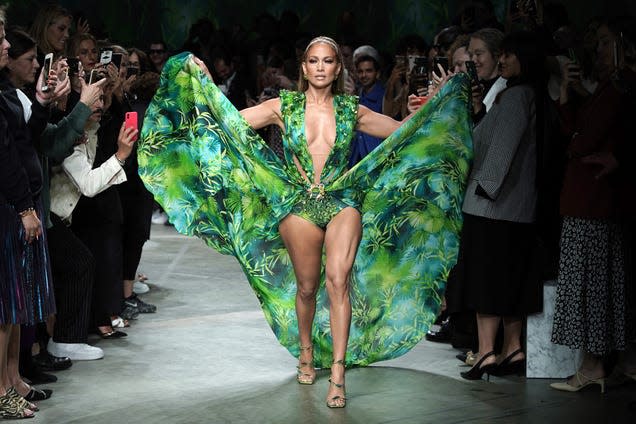Versace is the latest luxury brand to increase prices

Buying Versace will cost you more now and it’s not due to inflation. Mainly, according to John Idol, the CEO of Capri Holdings, which owns Versace, it’s because many other luxury brands, including Chanel, Louis Vuitton, Rolex, and Bottega Veneta has been raising prices so they are, too.
“We’ve made a decision recently to take Versace up a further level from where it is today,” Idol said on Sept. 8 while speaking at the Goldman Sachs Retail Conference. “We think we have the right product. We think we have the right brand heat, and we know that many of our competitors are at substantially higher prices than us.”
Read more
The 2023 Lincoln Corsair Adds Improved Hands-Free Driving and New Colors
At Last, a Plausible Origin Story for the Kim Kardashian-Ray J Sex Tape
Although Versace is associated with an image of high glamor and has a number of cultural moments under its belt, it has always sat a tier beneath houses like Louis Vuitton, Chanel, Gucci, and Prada. For one, it’s a lot younger than those other brands. It was founded in 1978 versus some houses that are over a century old. It’s also been more of an apparel-driven brand in an industry where accessories are the real moneymaker.
But the rollout of the Fendace collection earlier this year, a crossover collaboration between Versace and Fendi, created a big stir, and a strong investment into accessories is underway. With these new changes, Capri said it’s very confident Versace can grow to $2 billion in annual revenue, up from the $1.2 billion it earned last year.
Currently, most Versace bags are within the $1,000 to $3,000 range. Dior and Gucci, in contrast, are in the $3,000 to $5,000 tier. Some Chanel handbag styles have reached $10,000, something that previously only Hermes had been able to command.
Capri’s other brands in the portfolio—Michael Kors and Jimmy Choo—are also getting high-end makeovers. In the case of Michael Kors, it’s to correct its image which, especially in the US, had become very outlet and discount-oriented. Over the past 2.5 years, accessory prices at Michael Kors have grown by about 25%. At shoemaker Jimmy Choo, prices began their upward climb at the end of last year. Idol promises there is more price elevation to come.
“There will be more price increases for both Michael Kors and Jimmy Choo next year as well as we continue to elevate and get the positioning right for both of those brands,” said the CEO.
The resale market is pushing original retail prices higher
Idol shed some light on the unstoppable ascent of the price of luxury goods a few weeks earlier on the firm’s earnings call: the resale market.
“Interestingly enough, the resale market has I think created a comfort level with people in the luxury world that they can not only purchase and enjoy but they see value in the ability to be able to resell product,” he said.
With stigma over buying second-hand items fading, and online trading platforms making those transactions simple, the sector is expected to grow an average of nearly 10% a year. The global luxury resale market last year was valued at $32.61 billion, and is likely to reach $51.77 billion by 2026.
As a general rule, luxury bags do not hold their value nearly as well as high-end watches but the number of items that can be resold, occasionally even outstripping their original sale price, is growing.

